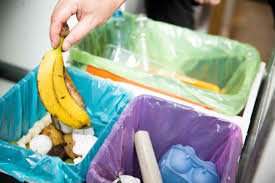Waste attracts pests and can cause food contamination. It can also cost you points on your health inspection. Find out the top 10 rules for waste disposal in a food business.
Waste attracts pests and can cause cross-contamination of food that is being served to customers.
Food businesses must have the proper equipment in place to manage both liquid and solid waste, and have strict procedures for waste management, including regular garbage collection.
Top ten (10) rules for effective waste disposal
- Remove food scraps from the kitchen daily – or more frequently if required.
- Arrange regular garbage collection. Most food businesses require garbage collection at least twice a week.
- Do not allow garbage containers to overflow. Move overflowing waste to other containers.
- Regularly hose down and clean garbage containers.
- Always use a garbage liner for garbage containers. This is a good way to ensure that the garbage container is kept as clean as possible and that harmful bacteria do not have time to grow on the inside of the unit itself.
- Keep lids tightly closed on all garbage containers when in use.
- Use special containers to dispose of dangerous items like broken glass. Talk to your supervisor or manager if you are unsure of how to dispose of dangerous items.
- Never use garbage containers to transfer food or ice.
- In warm climates – refrigerate food scraps to prevent bacteria from growing to harmful levels quickly – but always use a separate refrigerator to one that contains food intended for human consumption.
- Finally, always wash your hands after handling garbage and garbage containers – no exceptions!



